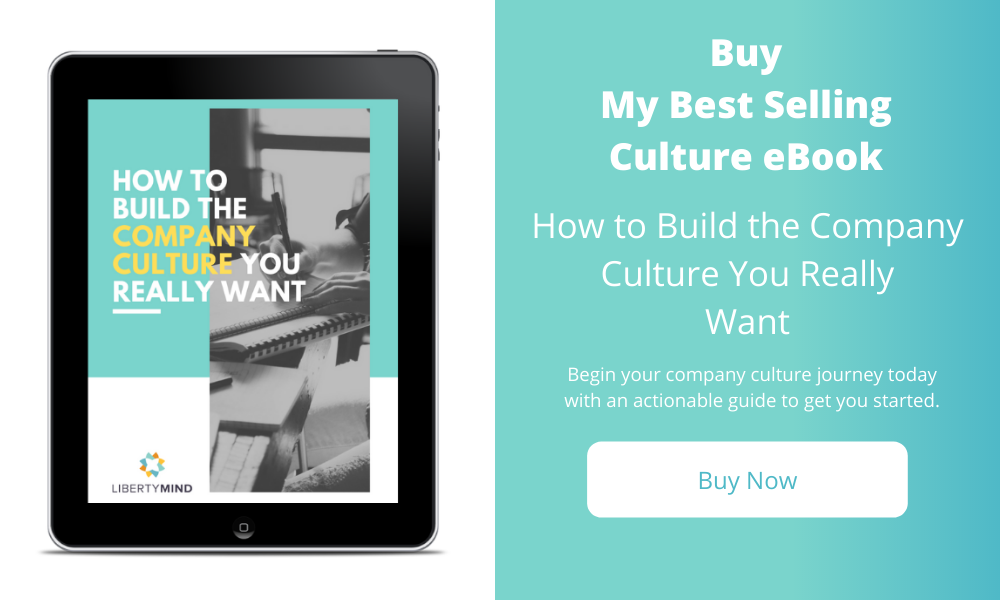9 Company Culture Stats that Will Make Culture A Priority
Company culture is deemed as the ‘fluffy stuff’ in business, yet time and time again the data reveals how it makes a solid impact not only on profits but also on a business’s success in their sector.
You need only to look at brands that dominate their industry to see that their company culture is taken seriously and seen as a serious investment.
However, in a recent report by Speakap, one in three employees believe their employer won’t take company culture seriously.
We can only bang the drum so much to make businesses understand the importance of company culture because sometimes people can only be persuaded by hard evidence rather than a voice.
If you’re still on the edge about whether you need to change your company culture or begin to create one, here are nine company culture stats that will inspire you to make culture a priority.
88% of Employees Believe a Distinct Workplace Culture is Important to Business Success
This data was found in a 2017 survey by Deloitte and provides us with the evidence that company culture matters to employees.
Even if it doesn’t mean a great deal to your organisation or you as a leader, your employees are looking for great company culture.
Whether you think it’s important to business success or not, if your employees think it matters then it has a direct impact on your business.
With a poor company culture or nonexistent culture, you can expect morale to be low, productivity to be decreased, fear to reign and retention to be a pain point.
Companies with strong cultures saw a 4x increase in revenue growth.
In a report by Forbes in 2018, it was discovered that there is a direct link between companies with strong cultures and financial profitability.
If not for your employees, company culture makes business common sense.
When company culture is strong, teams are working together towards one common goal, they are driven, productive and will resolve issues much faster than a company with zero culture.
Retention will also be high, and employees will act as brand ambassadors of the organisation.

58% of people say they trust strangers more than their own boss.
Harvard Business Review revealed in 2018 that 58% of people trust strangers more than their own boss.
This piece of data may be hard for many organisations to swallow but this is the cold hard truth when it comes to company culture.
When a culture is nonexistent or toxic it breeds distrust, frustration, resentment, and fear.
These types of company cultures only end one way, with people leaving and productivity catastrophically slow.
When a culture is like this it can be destructive in times of economic turbulence. Rather than an organisation being able to weather the storm with a team that can come together and supports each other, businesses begin to stumble as nobody feels safe or knows who they can trust.
When companies have a poor culture, 48% employees start looking for a job.
This research by Columbia University in 2017 will come as no surprise to many of us. After all, who wants to work in a company that makes us miserable?
We all want to be able to go to work and be happy and feel that we are contributing to something bigger.
As I’ve often explained, culture is more than your work perks or the social events you hold, culture is a thread that runs through every area of your business and should give people the autonomy to carry out their work to the best of their ability.
From toxic cultures to poor managers, culture is at the heart why many employees leave their employer.

78% of executives said culture is among the top five things that add value to their company.
Company culture is a valuable asset to a business. It drives the brand, increases retention, reduces employee absence, increases employability and productivity, and creates brand dominance. The list goes on.
When a unique company culture is truly embedded into the organisation, people feel they are working with purpose, and are more driven than their zero culture counterparts.
To any buyer, culture is almost priceless because it is a security that if a buyout happens this company will be able to handle change.
Compare this to a company that has unhappy employees and low productivity, and you’re looking at a dangerous risk rather than a secure investment.
Job turnover in an organisation with positive company culture is a mere 13.9 percent, compared to turnover in low company cultures at 48.4 percent.
According to Glassdoor, the average cost to hire a new employee is around £4,129, with an estimated 42 days to fill a position.
Now imagine having to spend that amount of time and money regularly finding new staff. It’s going to become a serious issue for your business and a costly one.
When people leave it’s not a simple case of replace and job done. The gap between them leaving and you finding someone else means their role is placed onto other employees shoulders, causing extra burden and frustration.
The vicious cycle can mean that employees who aren’t leaving through the door start to become less productive and unhappy. Ultimately you’ll be pushing them out the door without even realising it.

87% of organisations cite culture and engagement as one of their top challenges.
A study by Deloitte in 2017 found that culture and engagement is a struggle for organisations, and this is understandable.
Engagement isn’t about making people happy, it’s about making them feel connected to the business and driven to work for the organisation’s purpose even when times are difficult.
Culture will stimulate engagement; together they are a force to be reckoned with when implemented correctly and it can be a challenge to get there.
Not only do you have to assess and audit where your culture currently sits, but you also have to decide how you want your culture to be and how you’re going to drive this culture through every area of the business.
Only 54% of employees recommend their company as a place to work.
This research by Glassdoor highlights how important employee experience can be when looking to recruit.
We all know that people talk about work, and unfortunately, our human brains are wired to remember the negative more than the positive.
If you have an employee bad-mouthing your organisation even to friends and family, these words can spread and before you know it your employer brand is tarnished.
Compare that with positive company cultures, and you’ve got organisations who receive more CV’s than they have jobs available.

More than 87% of the world’s workforce is not engaged, yet engaged workplaces are
21% more profitable.
This data revealed by Gallup strengthens the evidence that engaged teams create profitable organisations.
Engagement stems from company culture, and when culture is strong and people feel part of it, collaboration and productivity is high.
We work in a world where people want more from their lives. The risk of going solo is no longer seen as a risk, and if businesses want to retain talented individuals they have to create company cultures that enable people to thrive.
If you’re currently looking to restructure your company culture or even create one, contact me about my Company Culture Consultancy. We can help you identify the gaps in your company culture and increase employee engagement.







